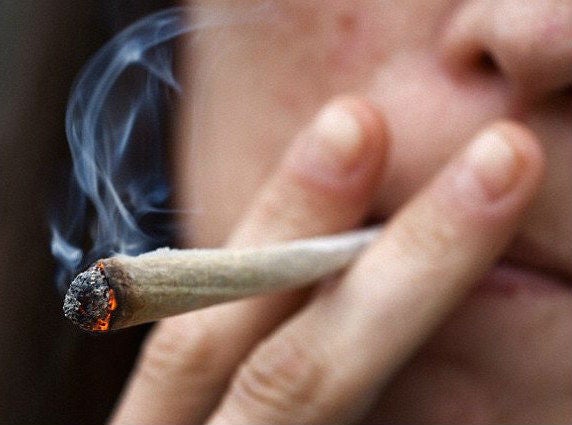Police shouldn't stop and search people just because they can smell cannabis, says report
'The smell of cannabis on its own, with no other contributory factors, will not normally justify a search,' official report states

Your support helps us to tell the story
From reproductive rights to climate change to Big Tech, The Independent is on the ground when the story is developing. Whether it's investigating the financials of Elon Musk's pro-Trump PAC or producing our latest documentary, 'The A Word', which shines a light on the American women fighting for reproductive rights, we know how important it is to parse out the facts from the messaging.
At such a critical moment in US history, we need reporters on the ground. Your donation allows us to keep sending journalists to speak to both sides of the story.
The Independent is trusted by Americans across the entire political spectrum. And unlike many other quality news outlets, we choose not to lock Americans out of our reporting and analysis with paywalls. We believe quality journalism should be available to everyone, paid for by those who can afford it.
Your support makes all the difference.Police officers have been urged by officials not to search people for drugs just because they can smell cannabis.
A report by HM Inspectorate of Constabulary (HMICFRS) found the practice did not increase the likelihood of a conviction, and should not be grounds to stop a suspect in and of itself.
Although there has been no law change, the report makes clear that officers conducting stop and searches should consider a suspect’s behaviour ahead of anything they can smell.
It found that many forces across the UK were completely unaware of the guidance, and that there had been 596 recorded incidents of an officer conducting a stop and search on the grounds of being able to smell cannabis alone.
"There was one area of the stop and search APP [Authorised Professional Practice) where we found particularly inconsistent awareness among frontline officers," the report says.
"The APP sets out that the smell of cannabis on its own, with no other contributory factors, will not normally justify a search. More recent research has shown that the inclusion of the smell of cannabis in officers’ grounds for search did not increase the likelihood that a search for cannabis resulted in a criminal justice outcome.
"It concluded that a suspect’s behaviour should be more important than the smell of cannabis when deciding to conduct a search, because behaviour linked directly or indirectly to drugs increased the likelihood of a positive outcome."
The Metropolitan Police and Greater Manchester Police, England's two biggest police forces, were unable to tell The Independent if police officers were still stopping and searching based only on the smell of cannabis at the time of publication.
The report also made clear that the disproportionate use of stop-and-search powers on black, Asian and ethnic minority people was threatening public trust and confidence in the police
Black people are at least eight times more likely than white people to be stopped and searched - even though it is statistically less likely for drugs to be found.
The stark figures were examined in the body’s annual report on the legitimacy of policing across England and Wales, where over three quarters of forces were found to be “good” or “outstanding” overall.
HM Inspector Mike Cunningham, who led the inspection, said that police were acting “ethically, lawfully and treating all the people they serve with fairness and respect”.
“But that is not to say that there aren’t elements forces could and should improve upon,” he added.
“Of particular concern is the continuing over-representation of black people in stop and search figures.
“Forces must be able to explain the reasons for any disparity if they are to enhance the trust and confidence of all communities.”
There were more than 295,600 stop and searches carried out in the 2016/17 financial year – a rate of one for every 200 people.
Join our commenting forum
Join thought-provoking conversations, follow other Independent readers and see their replies
Comments